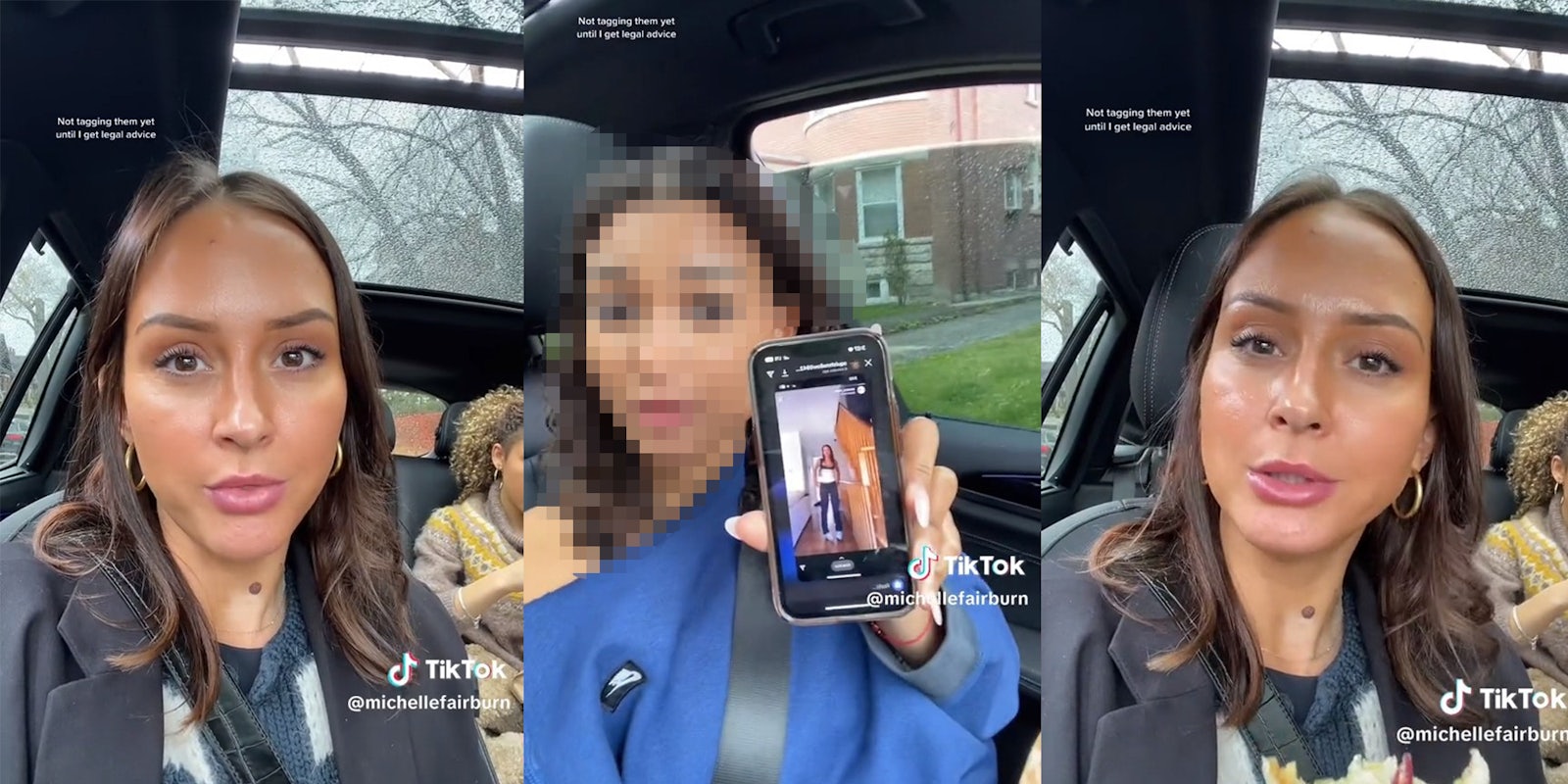Some businesses see social media posts as a treasure trove of free marketing content that they can use to advertise their products and services. Plenty of Influencers have called out companies for using their likenesses on videos or posts without permission or payment of any kind.
Real estate consultant and TikToker Michelle Fairburn (@michellefairburn) recently posted a clip calling out a “predatory” clothing brand that allegedly used her daughter’s content without her permission.
Fairburn states that while her daughter initially reached out to the brand for the collaboration to secure herself some free product, their deal didn’t include rights to use her TikTok on their own website. This is why Fairburn and her teenage daughter were shocked to see that the company took her video and utilized it in a paid Instagram advertisement.
Fairburn says she was “livid” over the way the company handled the situation, and that she found it doubly disgusting that the brand seemed to think they can get away with stealing content from her underage daughter. She clarified in a comment that the clothing brand was called Emmiol.
@michellefairburn Pay her!!!!! I am livid! #legaladvice #corrupt #protectyourkids ♬ original sound – Michelle Fairburn
The influencer delineated that the business exchange was supposed to begin and end with the free product and a video her daughter posted to her own TikTok account. However, Emmiol wanted to know if they could have rights to the video, which Fairburn and her daughter denied if there was no payment involved.
“She got the free product, she posted a TikTok it went extremely viral, they reached out and they asked if they could use it on their website which I said no,” Fairburn says. “I said, ‘You’re gonna respond to the brand and you’re gonna ask them for a dollar amount in exchange for them using the TikTok on their website.’ I mean why should they be able to use it for free, that is absolutely insane.”
It appears that the business wasn’t interested in paying to use the video as part of its ad campaigns as they didn’t respond to her daughter’s message about payment.
Fairburn continues, “Now we’re sitting in the car and she just got a text from her friend saying that they are using it on her website.”
The TikToker then pans her camera to her daughter who is seated beside her. She holds up a phone showing her TikTok video. “They used it as an ad on Instagram,” Fairburn’s daughter says.
“This is so predatory please share this with anyone that you think can help me because I am so more than livid this is taking advantage of minors on social media,” she says. “God forbid other kids out there are just allowing this to happen ’cause they think it’s cool. Do you know how much ads brands have to pay for whitelisting? And they’re just stealing this for free? Yeah I’m tagging you, I am livid.”
Viewers seemed equally shocked that the clothing brand Emmiol would post an advertisement using her daughter’s likeness even though she didn’t give them permission.
“She’s also a MINOR. Call your local news desks. The media will expose them, which will scare them,” one wrote.
Another said, “Definitely take legal action! You have commercial use rights of your own image that they’re profiting off. Make sure you screen record evidence!!!”
Embedding public videos on social media is generally legal to do, as long as one uses the native embed codes from said website/application. However, “ripping” a video posted by a content creator and then hosting it on another social media page or one’s own website, especially if that site is monetized and brings in any type of revenue stream, is generally classified as illegal if there is copyright on said content.
Fairburn posted a follow-up video sharing how her daughter ended up getting paid for the content, both the commission fee and the fee they asked the brand to compensate them with.
“[My daughter] was overjoyed,” Fairburn says. “It taught my daughter such an important lesson to never tolerate anyone screwing you over.”
The Daily Dot has reached out to Fairburn via TikTok comment.



